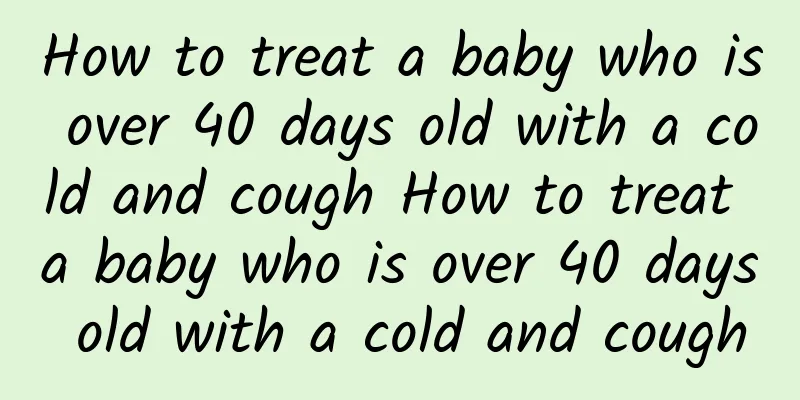2-year-old baby with Hirschsprung disease

|
Hirschsprung's disease is a disease caused by abnormal development of intestinal nerves, which leads to intestinal motility dysfunction. A 2-year-old baby may show symptoms such as abdominal distension, constipation, vomiting, etc. He should see a doctor as soon as possible for diagnosis and choose treatment according to the specific situation. 1. Causes of Hirschsprung's disease Hirschsprung's disease is caused by incomplete or absent development of intestinal ganglion cells and may be related to the following factors: Genetic factors: Congenital Hirschsprung's disease has a certain genetic tendency, and some children may develop the disease due to family genetic mutations. Environmental factors: The mother is exposed to some external environmental factors during pregnancy, such as side effects of drugs, infection or other toxin exposure, which may interfere with the development of fetal intestinal nerves. Physiological and pathological factors: Abnormal development of the peripheral nervous system before birth can directly affect intestinal function, further causing constipation and even intestinal obstruction. 2. Hirschsprung disease requires early intervention and treatment The goal of treatment is to relieve intestinal obstruction and restore normal bowel function. The following are common treatment approaches: Surgical treatment: For children with a clear diagnosis, colectomy is currently the most effective treatment. Commonly used surgical procedures include rectal mucosal resection or transanal pull-out, which can remove the abnormally developed intestinal segment and restore intestinal function. Drug-assisted treatment: Before surgery or during the postoperative recovery phase, constipation symptoms can be relieved through auxiliary drugs such as enema and laxatives, but this must be done under the guidance of a doctor. Dietary conditioning: During the postoperative recovery period, a fiber-rich diet should be adopted, such as softened vegetable puree, fruit puree and whole grains, which will help promote the recovery of intestinal peristalsis function. 3. The key is to give your baby regular and healthy living habits In addition to medical intervention, daily health management is also crucial: Regular follow-up: There may still be a risk of intestinal dysfunction after surgery for congenital megacolon, and regular follow-up should be performed to monitor the intestinal condition. Hygiene care: After surgery, pay attention to the cleanliness around the anus to prevent infection. Moderate exercise: Help your baby develop the habit of activity. Gentle abdominal massage can also improve intestinal motility. Early detection and treatment of Hirschsprung's disease can significantly improve your baby's quality of life. If you suspect your 2-year-old baby has similar symptoms, it is recommended that parents seek medical attention as soon as possible and take timely and effective intervention measures. Your baby's health requires your close attention and the guidance and support of professional doctors. |
<<: What medicine is good for children with bacterial tracheitis and cough
Recommend
Can breast milk diarrhea heal itself without treatment?
Can breast milk diarrhea heal itself without trea...
Is polio hereditary?
Polio is not directly inherited, but genetic fact...
Is breast milk diarrhea harmful to the body?
What harm will breast milk diarrhea bring to the ...
What is mumps?
What is mumps? Mumps is an acute infectious respi...
What are the dangers of having kidney disease in children
Faced with the continuous occurrence of children&...
The latest treatment for pneumonia in children
I believe many people have heard of pneumonia, be...
Does neonatal jaundice require treatment?
Does neonatal jaundice require treatment? Whether...
When is the best time to take medicine for hand, foot and mouth disease?
When is the best time to take medicine for hand, ...
How to treat indigestion in children? The correct way to treat indigestion in children
There are many reasons for indigestion in childre...
Does mild polio affect marriage?
Many patients with polio will first think about w...
How to treat neonatal hemolytic jaundice
The treatment of neonatal hemolytic jaundice requ...
How to diagnose hernia in children
The diagnosis of hernia in children is usually ba...
How to treat mumps correctly
There are more and more mumps patients now. Most ...
Is polio hereditary?
Polio is not hereditary. It is an infectious dise...
Which exercises are best for ADHD?
It is not terrible to have ADHD, but it is terrib...









